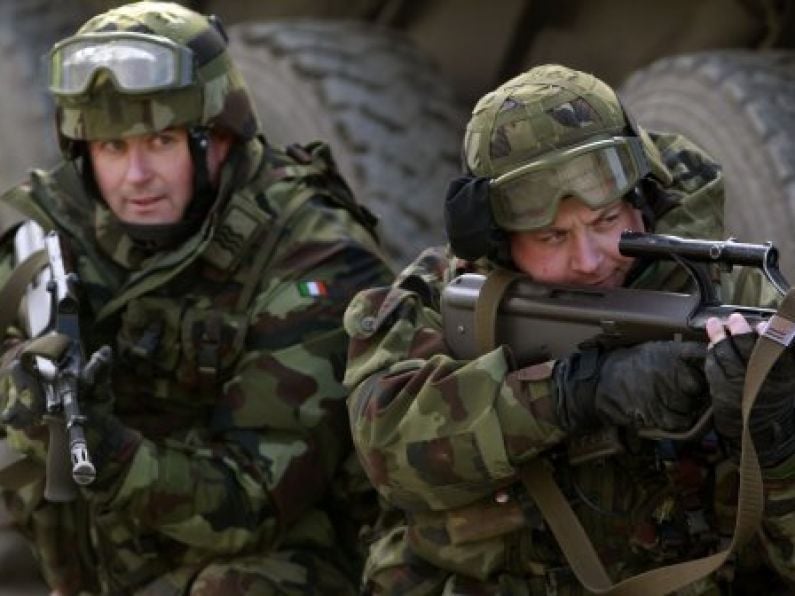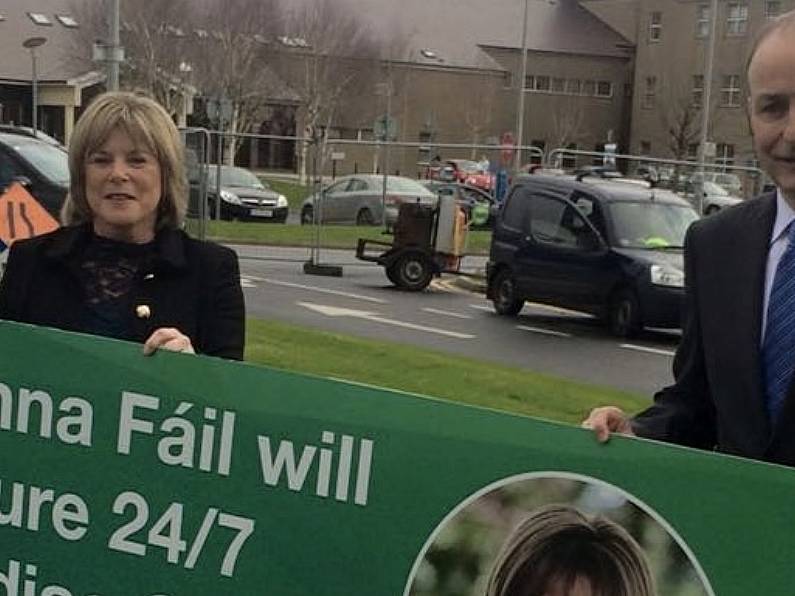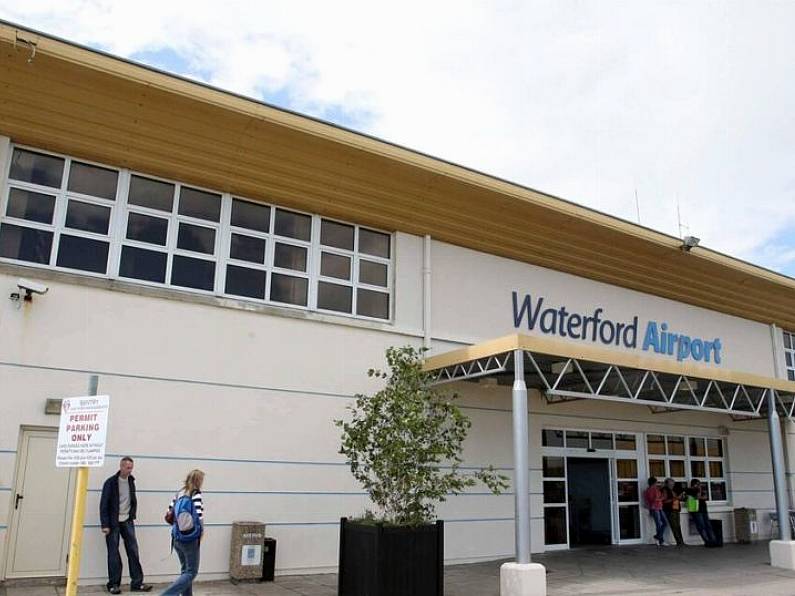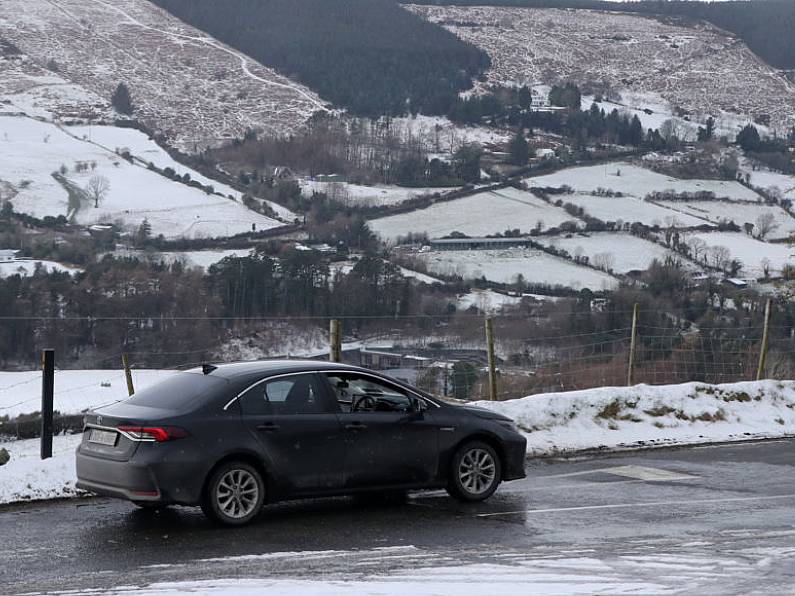James Cox
It is crucial that the Government moves quickly to start implementing the recommendations in the Commission on the Defence Forces report, according to a TD and former head of the Army Ranger Wing.
The Commission on the Defence Forces considered the Irish army’s capabilities, structures and staffing, in a report published on Wednesday.
The commission members spent more than 13 months compiling the report, and received 480 submissions and spoke to 1,000 Defence Forces personnel of all ranks.
Understaffing was cited as a big concern with a "strong sense of crisis" in the Defence Forces.
Delays counterproductive
Cathal Berry, who spent six years in the Army Ranger Wing, told BreakingNews.ie: "If they don’t [implement some of the recommendations] it will have a devastating effect on military capability and morale, the military community’s heart has been broken a lot over the last 10 years. There have been a number of reports that were not implemented in full, or at all, if this is just another paper tiger like that it will be counterproductive."
The Minister for Foreign Affairs Simon Coveney has said he agrees with "virtually everything" in the report but said it could take "four or five months" to consider fully.
While Mr Berry feels the report has the potential to be "transformational", he said four or five months is "far too long" and changes need to be made as soon as possible.
The Defence Forces need assistance and intervention now, another four or five months is ridiculous.
"I am concerned, there was a comment made that it might take four or five months for the Government to respond to this report, that’s completely unacceptable, they’ve had civil servants embedded in the commission from the very start, so nothing in the report here is a surprise for them.
"If they don’t turn it around much quicker than the next four or five months, that would imply it would go into the summer recess, the Defence Forces need assistance and intervention now, another four or five months is ridiculous."
The Independent TD added: "What I would like to see next week is approval to be granted for the military representative associations to be able to affiliate with the Irish Congress of Trade Unions (Ictu) for pay negotiations, it’s imperative, cost neutral, and it should be done immediately, it should have been done 30 years ago really. They can’t wait another four or five months for that."
The commission, in the report, recommends urgent reform of the military, particularly the Naval Service and Air Corps.
However, Mr Berry feels better conditions for the men and women in the Defence Forces are just as important. "People are the number one priority," he said.
"Without people you can’t put ships to sea. We actually have the hardware in Cork at the moment, but there’s nobody to crew the ship. You can have all the hardware you want, a rifle is only as good as the man or woman holding it, the key resource of the Defence Forces is its people and if you don’t invest in your people, you have big problems."
New hybrid conflict
Mr Berry cited intelligence services, cyber defence capability, and investment in special forces as three of the report's key recommendations.
"There's a new type of hybrid conflict which appears to be emerging," he said. "We need to be prepared to be able to deal with that, the best way is to invest in early warning systems like our intelligence service, to do horizon scanning, so threats can be identified at an early stage."
There was much controversy over Russian plans to conduct naval exercises off the Irish coast recently, and while they were eventually moved away from Ireland's exclusive economic zone, Mr Berry cites the incident as the type of eventuality the State has to be prepared for in the future.
"There was talk of a live fire component to their exercise, nobody can tell me whether the live fire actually happened or not because we don’t even have the means to detect what’s happening in home waters.
"If you can’t detect, you can’t deter and a pre-condition for deterrence is detection, and we need to improve our sensors in the Atlantic and in the air as well, so military grade primary radar are crucial along with coastal radar for our home waters.
"If the Government wants to demonstrate intent and demonstrate that they are serious about this they need to implement it as soon as possible. There are a number of key measures that can be done very quickly, that don’t require any big strategic thought, and nothing in this report should be surprising to Government. Minister Coveney has done briefs on it the whole way along, and they need to move to the implementation phase as soon as possible.
"The Ictu thing, radar can be purchased quickly, the intelligence services can be upgraded."
Mr Berry feels staff retention is the most important problem facing the Defence Forces at the moment.
Retention
"People are the most important, and once the retention issue [is dealt with], everything will be solved after that. At the moment we can’t get more than 8,500 people to stay in the Defence Forces so what we need to do is one of two metrics for whether things are going to get better; it’s important to look at the Budget in October, and secondly we need to get the 8,500 figure towards 9,000 before the end of the year, they’re the two metrics that matter. Money and people, we’ll see how that plays out."
Under the report's most ambitious proposals, the current €1.1 billion defence budget would increase by 300 per cent, the Naval Service would be made up of 12 ships and the Air Corps would be equipped with long-range transport aircraft and a squadron of between 12 and 24 fighter jets to police Irish skies.
However, it would work towards these goals in phases, and Mr Berry pointed out that much military spending also has other purposes.
If you’re upgrading the military you’re upgrading other services by extension.
"From a health point of view, there’s no point investing €20 billion in our health service every year if a cyberattack is going to paralyse the system every summer like last year; it cost €100 million to fix it and that’s one simple attack, imagine that every year.
"Secondly, from the national grid point of view, and our public transport, a cyberattack there could totally paralyse the country. The people who suffer most are the most vulnerable who rely on State services.
Dual use
"This equipment is dual use. A helicopter for instance, that has a core military function, but it’s also used as an air ambulance, an air fire brigade for gorse fires, and for search and rescue.
"Not only are you getting the core military component, there are these add on services that are so important so the military is completely integrated into our health system and fire fighting system.
"If you’re upgrading the military you’re upgrading other services by extension."
Mr Berry also said additional investment in the Defence Forces is crucial for Ireland's neutrality.
"If we don’t have the ability to detect and deter the country can be used as a playground for the great powers to do as they wish.
"What you’re signalling to the world is we don’t care, you can plunder our seas, traffic vulnerable people, infringe on our airspace, do dangerous manoeuvres in our airspace and compromise our safety. It signals we don’t care and will affect us disproportionately.
"There’s no time to waste, we’ve been waiting 10 years for intervention and there’s nothing surprising, they’ve known about it for months, and they should make a swift decision and get on with it."
Mr Berry also said he will be raising the issue of Ireland's preparedness for the potential fallout from an escalation in violence between Russia and Ukraine in Leaders' Questions today.
"I will be asking about the Ukrainian situation, how planning is going to make sure we’re protected form any spillover, from a cyber perspective, from an energy security perspective, from a refugee acceptance perspective, and the embassy in Kyiv."












